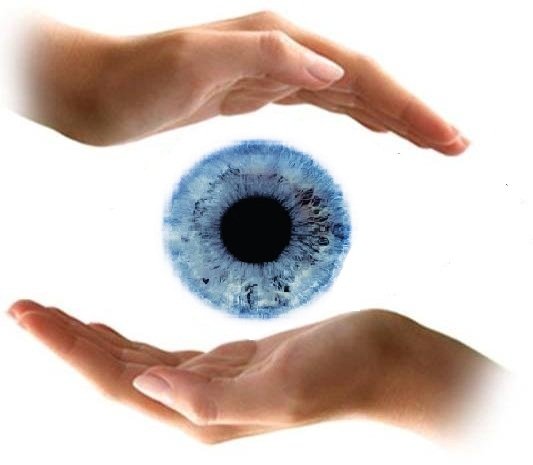Is Refractive Surgical Procedure Right for You? Factors to Take Into Consideration for Better Eyecare
In the realm of eye care, the decision to undergo refractive surgery is a significant one that demands thoughtful consideration. From the complexities of one's ocular health to the intricacies of individual assumptions and everyday routines, each element holds importance in the broader landscape of refractive surgery candidateship.
Eye Wellness Examination
When thinking about refractive surgical treatment, an extensive eye health analysis is critical to analyze the viability of the procedure for each person. eye doctors in andalusia. This evaluation entails a series of assessments and tests performed by an eye treatment professional to establish the general health of the eyes, the visibility of any type of underlying problems, and the stability of the refractive mistake
During the analysis, different elements are taken into consideration, such as the individual's medical background, current eye prescription, corneal density, pupil dimension, and tear movie high quality. These assessments assist to identify any kind of contraindications to refractive surgery, such as corneal problems, cataracts, or neglected eye infections. In addition, the assessment aids to manage individual expectations relating to the possible outcomes of the surgical procedure based on their distinct eye features.
Inevitably, the eye health and wellness evaluation is necessary in making certain the safety and efficiency of refractive surgical procedure, as it gives valuable insights into the individual's eye health and wellness condition and assists establish one of the most ideal therapy alternatives for achieving optimal visual outcomes. (eye center andalusia)
Way Of Living Analysis
A detailed way of life assessment is important in identifying the viability of refractive surgical treatment for a person's visual improvement requirements. Way of living elements such as line of work, pastimes, and day-to-day activities play a vital role in the decision-making procedure regarding refractive surgical treatment.
Furthermore, lifestyle habits such as sporting activities engagement, exterior tasks, or even skincare routines can affect the recovery procedure and general success of refractive surgical treatment. By carrying out an extensive lifestyle assessment, eye treatment specialists can tailor their suggestions and treatment strategies to satisfy the distinct needs of each patient, ultimately leading to boosted aesthetic results and complete satisfaction.
Assumption Placement

People need to understand that while many people achieve 20/20 vision or much better adhering to refractive surgical treatment, some might still require glasses for particular activities like reading or driving at evening. Managing these assumptions More Help aids avoid dissatisfaction and dissatisfaction post-surgery, leading to a much more favorable overall experience for the individual.
Threat Analysis

Aspects that may raise the risk of difficulties include age, particular medical problems like autoimmune diseases, unsteady vision prescription, slim corneas, and unrealistic individual assumptions. Additionally, selecting a skilled and knowledgeable doctor, following pre and post-operative care guidelines diligently, and disclosing any type of pertinent clinical history can assist alleviate threats.
To minimize the possibility of difficulties, eye doctors conduct thorough pre-operative analyses to identify any kind of contraindications to surgery. They additionally go over the possible risks and benefits with individuals throughout the appointment procedure. By involving in open interaction and shared decision-making, both the patient and the ophthalmologist can collaborate to identify if refractive surgical treatment is the best option based on private risk profiles and desired outcomes.
Consultation Importance
Considering the crucial role of informed decision-making in analyzing dangers and prospective problems in refractive surgery, the consultation procedure holds substantial value in assisting clients towards optimal end results. During the assessment, the ophthalmologist reviews the person's important site eye health and wellness, refractive errors, and total viability for surgical treatment. This initial analysis is vital in figuring out the most ideal procedure for each person, considering factors such as corneal density, pupil dimension, and existing eye conditions.
Moreover, the appointment functions as an opportunity for individuals to discuss their assumptions, issues, and any kind of concerns they might have relating to the surgery. Clear interaction between the doctor and the client is important to make sure realistic assumptions and a comprehensive understanding of the possible risks and advantages entailed.
Furthermore, the appointment allows the specialist to explain the different medical options offered, their corresponding outcomes, and the post-operative care called for. This comprehensive discussion encourages patients to make knowledgeable choices concerning their eye care, resulting in much better satisfaction and results post-surgery.
Final Thought
In verdict, individuals thinking about refractive surgical procedure needs to undergo an extensive eye wellness analysis, assess their lifestyle practices, straighten their assumptions with possible outcomes, evaluate the involved dangers, and prioritize examinations with eye treatment specialists. These factors play a crucial function in figuring out the viability of refractive surgical treatment for each individual, making sure optimum outcomes and complete satisfaction with the treatment.
Patients thinking about refractive surgical treatment typically have high expectations concerning the outcomes, expecting ideal next vision without the need for glasses or call lenses. While refractive surgical treatment can greatly improve vision and minimize reliance on aesthetic aids, it is crucial for clients to recognize that outcomes may vary based on specific factors such as the level of refractive error, corneal density, and overall eye wellness.
By engaging in open interaction and shared decision-making, both the patient and the eye doctor can function together to figure out if refractive surgery is the ideal selection based on private risk profiles and wanted outcomes.
Considering the crucial function of educated decision-making in examining threats and potential complications in refractive surgical treatment, the appointment procedure holds substantial value in assisting people in the direction of optimum results. During the assessment, the ophthalmologist examines the person's eye wellness, refractive errors, and general viability for surgical treatment.